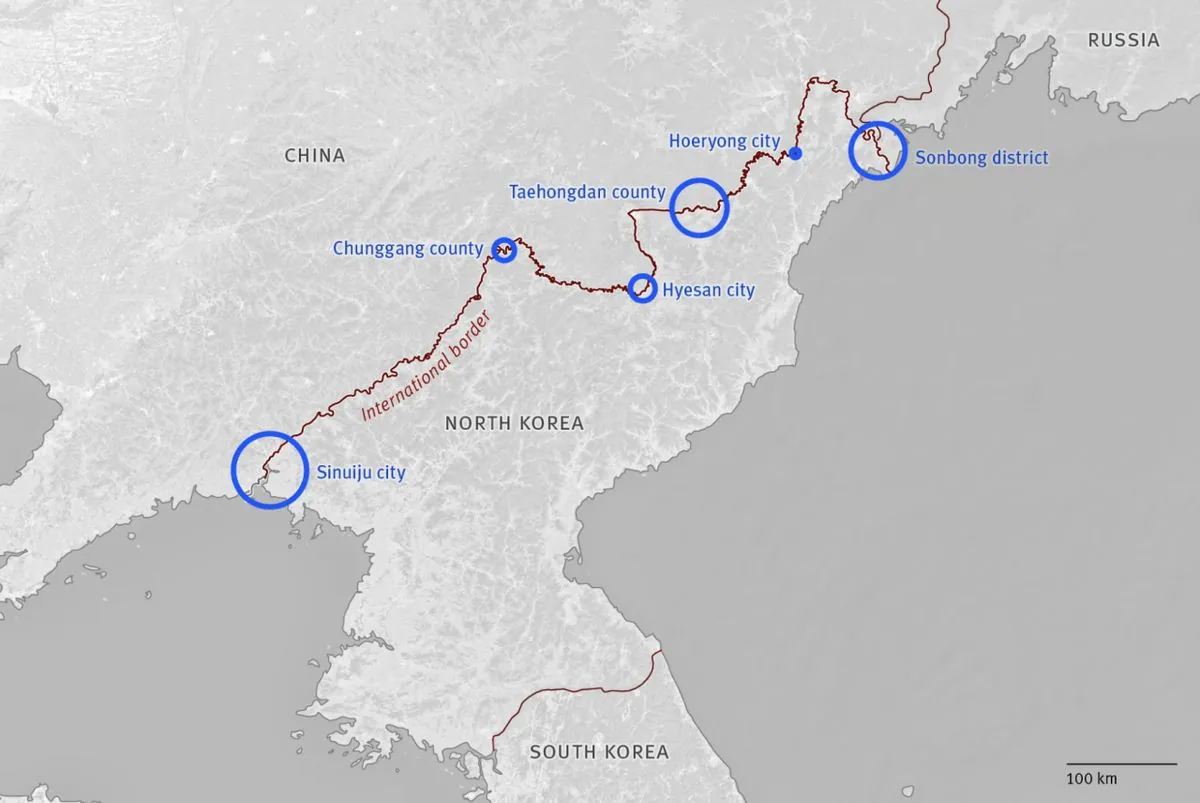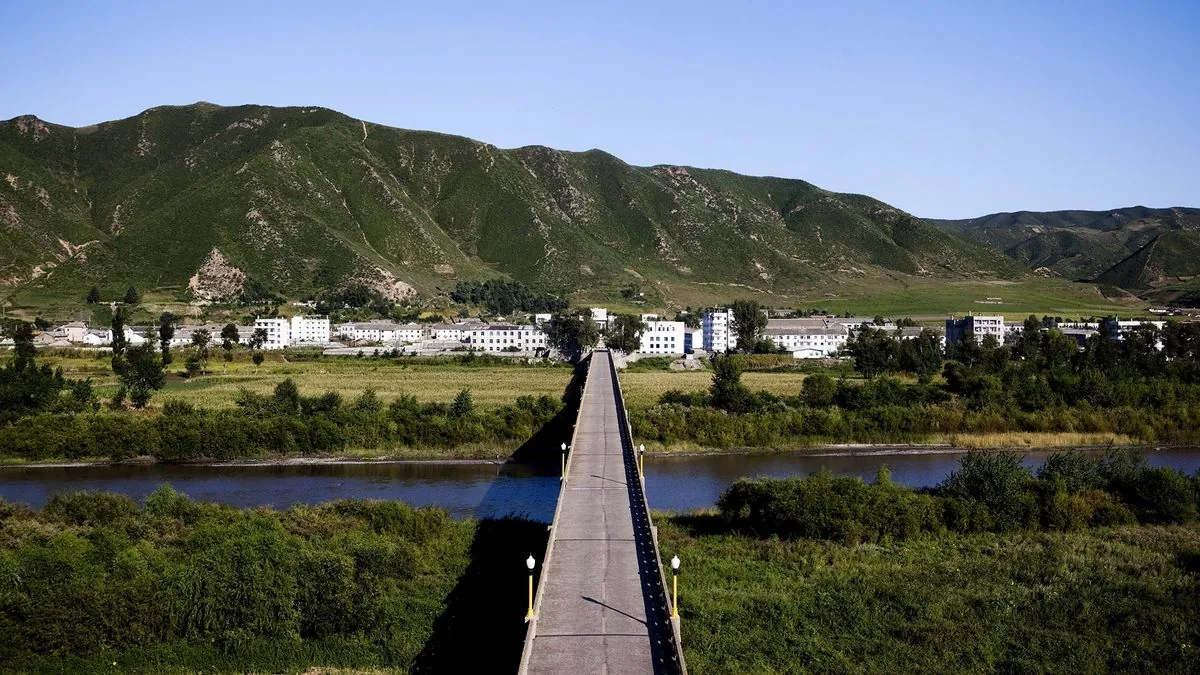China Ramps Up Border Surveillance, Imperiling North Korean Defectors
China intensifies border control measures, including facial recognition and deportation centers, making escape harder for North Korean defectors. New policies raise concerns about human rights and regional stability.

China has significantly enhanced its border security measures along its 1,416-kilometer frontier with North Korea, implementing a range of new technologies and policies that have made it increasingly difficult for North Korean defectors to escape. These measures, which have intensified since 2023, include the establishment of deportation centers, deployment of smart facial-recognition cameras, and increased boat patrols.
The heightened surveillance is part of a broader strategy by Chinese authorities to manage undocumented migration and maintain stability in the region. Border police in China's northeastern provinces have been given specific quotas to identify and expel undocumented migrants, according to official documents reviewed by Reuters.
In Jilin province, which shares a border with North Korea, the 2024 budget allocates nearly 30 million yuan for border security upgrades. This includes funding for new patrol boats and "deportation and repatriation" of foreigners who illegally enter, live, or work in the province. The budget sets performance metrics for border police stations, including points for achieving a 95% repatriation rate.

The city of Dandong, the largest Chinese city on the North Korean border, saw construction begin on a new deportation station in 2023. Another such facility is planned for Changchun city in Jilin. These developments are part of a broader network of detention and deportation infrastructure being established along the border.
China's approach to North Korean defectors has long been controversial. Despite criticism from the United Nations and human rights organizations, China maintains its "three nos" policy towards North Korean refugees: no encouragement, no intervention, and no refusal. Beijing officially denies the existence of North Korean defectors, instead treating them as illegal economic migrants.
The impact of these new measures on North Korean defectors has been severe. According to the Seoul-based Transitional Justice Working Group, approximately 70% of defectors attempting to reach South Korea over the past two years have been arrested by Chinese police, a significant increase from about 20% previously. Human rights groups report that China deported hundreds of undocumented North Koreans between August 2023 and July 2024.
"There was a high chance that Pyongyang had asked China for help in blocking routes for defectors."
The intensified surveillance has created an atmosphere of fear among North Koreans in China. Shin Ju-ye, who fled North Korea in the 1990s and settled in China's Heilongjiang province, described how village officials began ordering North Koreans to register their biometric information with the police during the COVID-19 pandemic. Many complied but later regretted it, fearing they were now "trapped in a fishing net."
The political dynamics between China and North Korea play a significant role in this crackdown. While both countries aim to control the flow of defectors, China's ability to determine their fate gives it potential leverage in diplomacy with North Korea. This is particularly relevant given North Korea's economic reliance on China and its increasingly close ties with Russia.
South Korea's Foreign Ministry has stated that Seoul is making "all-out efforts" to prevent China from forcibly repatriating North Korean defectors. However, the number of defectors reaching South Korea has declined overall since 2017, which Seoul's Unification Ministry attributes to tighter surveillance on the China-North Korea border.
As China continues to strengthen its border control measures, the future for North Korean defectors looks increasingly uncertain. The balance between regional stability, human rights concerns, and complex international relations remains a challenging issue for all parties involved.


































